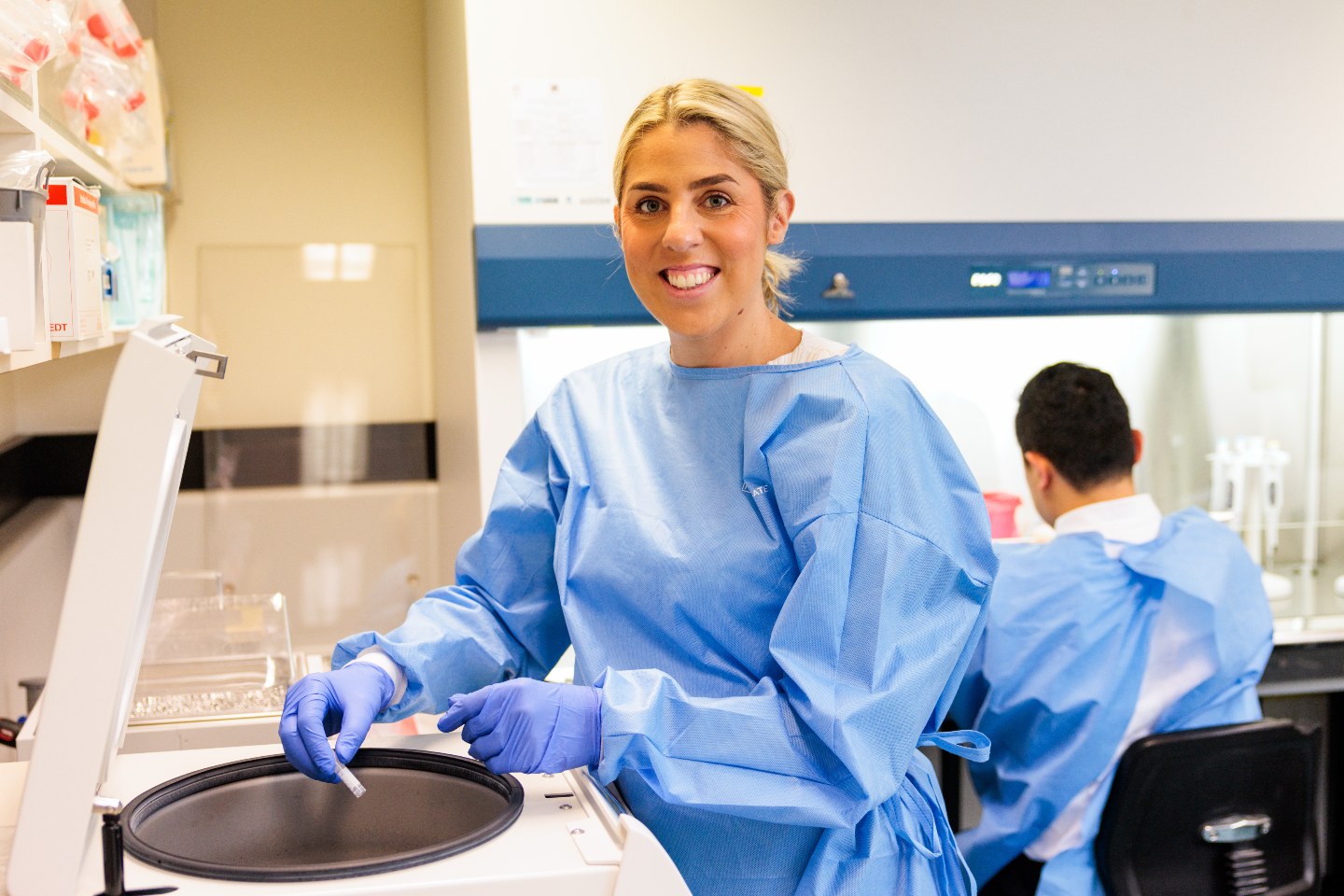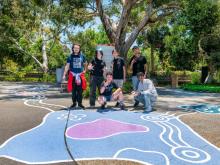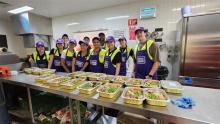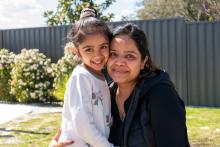When grounded in empathy and strategy, philanthropy is not only a monetary transaction, but a transformative force that can empower entire communities.


When grounded in empathy and strategy, philanthropy is not only a monetary transaction, but a transformative force that can empower entire communities.
Philanthropic funding is vital to support not-for-profit organisations to deliver life-changing charitable programs and conduct trailblazing research.
The Y WA strategic partnerships, advocacy and philanthropy manager Karen Hickling said effective philanthropy was built not only on a commitment to community, but a dedication to long-term relationships.
“The most powerful philanthropic efforts leverage strategic partnerships to bring together not for profits, business leaders, government and communities,” Ms Hickling said.
“Successful collaborations recognise that shared vision and pooled resources can amplify outcomes and so these partnerships are the cornerstone of sustainable change, ensuring that initiatives not only start strong, but endure.”
"We invite business leaders to join us not just as funders, but as partners in change." Y WA strategic partnerships, advocacy and philanthropy manager Karen Hickling
At the heart of philanthropy is the belief that communities themselves are best placed to identify their needs and solutions.
The Y WA’s evidence-based programs are proof that lived experience matters, according to Ms Hickling.
“We have witnessed firsthand how community-led initiatives, supported with the right tools and resources, can create meaningful and lasting change – change that allows children and young people to flourish and thrive at home, in school and in life,” Ms Hickling said.
“In a sector often limited by risk-averse funding, philanthropy can drive innovation by allowing for experimentation and creativity.
“It gives organisations like ours the scope to trial new models, pilot community programs and explore bold ideas that can reshape systems. These innovative solutions – once proven – can be scaled to reach more people and influence broader policy change.”

The Y WA's annual Kokoda Trek Program is supported by philanthropists through sponsorship.
Murdock Recruitment provided philanthropic sponsorship to the Y WA’s second Kokoda Trek Program and visited Kalgoorlie in 2024 to speak to some of the young people.
Murdock Recruitment operations manager Caine Sheridan-Williams said the recruitment agency deeply valued its ongoing partnership with the Y WA and would continue supporting its work for years to come.
“The Y has been a valued partner of ours for many years and it was a genuine privilege to visit one of their remote services in Western Australia late last year,” Mr Sheridan-Williams said.
“During my time in Kalgoorlie, I had the opportunity to meet some of the young participants involved in the Kokoda Trail Trip. I was truly inspired by their enthusiasm and the incredible impact this initiative has had on their lives.
“The chance to explore another culture during such a formative stage of life is a rare and powerful experience, and we were proud to play a small part in making it possible.
"Hearing firsthand about the positive outcomes for these young people has been both rewarding and humbling.”
The Y WA is committed to harnessing the full potential of its partnerships to empower communities, nurture innovation and build a future that benefits all generations.
“In doing so, we invite business leaders to join us not just as funders, but as partners in change,” Ms Hickling said.
Powering medical research
Philanthropic support is essential in the success of medical research in WA, as it fills urgent gaps, enables innovation and ensures research can continue even when public funding is limited or delayed.
In a world facing increasingly complex health challenges, philanthropy is emerging as a powerful driver of medical research and innovation, not simply as a charitable gesture, but as a strategic investment in the health of communities.
"Some of our most transformative work simply wouldn’t be possible without philanthropy." WIRF development manager Kate Miles
Although government funding – primarily through the National Health and Medical Research Council (NHMRC) and Medical Research Future Fund (MRFF) – remains as the cornerstone of national health investment, these grants often don’t reach early-stage, high-risk, or underfunded areas of research.
That’s where philanthropy plays a vital role.

WIRF development manager Kate Miles says some of the foundation’s most transformative work wouldn’t be possible without philanthropy.
When guided by purpose, evidence and community voices, it becomes a powerful force for building a healthier future, and the work being carried out at the Women and Infants Research Foundation is a key example of the impact philanthropy can have.
WIRF has made ground-breaking discoveries, developed new treatments, and found community-driven health solutions on its mission to improve health outcomes for women, babies, and families, all of which has been made possible by philanthropic funding.
“Around 30 to 35 per cent of WIRF’s annual income is generated through philanthropic support, from individual donors, community fundraisers, corporate sponsorships, and major gifts,” WIRF development manager Kate Miles said.
“Some of our most transformative work simply wouldn’t be possible without philanthropy.”
One standout example is WIRF’s Research Acceleration Awards (RAAs), designed to empower early-career researchers including PhD students, postdocs, midwives, nurses and clinicians.
The RAAs provide funding to explore new ideas and gather critical preliminary data needed to secure larger research grants – funding that is generated through philanthropic support.
More than 14 projects have been funded through this initiative since 2022, helping to unlock discoveries that may otherwise never have left the drawing board.

WIRF Research Acceleration Award recipients 2024 with WIRF executives: Dr Brennen Mills (L-R), Dr Bernardo Dewey, Dr Esther Adama, Dr Kate Buchanan, WIRF chief scientist Professor Matt Kemp, WIRF CEO Deb Portughes, and Dr Joseph A Carpini.
Another example of philanthropy in action is the financial support of Dr Erin Fee’s research into antenatal steroid therapy – a treatment that accelerates lung development in preterm babies.
Dr Fee has been able to continue her vital work after receiving about $750,000 in philanthropic funding.
This financial support will enable Dr Fee and her team to pursue innovations in timing, dosage and delivery that could maximise benefits and minimise side effects of antenatal steroid therapy, with clinical application now firmly on the horizon.
WIRF’s ground-breaking research also includes the development of artificial placenta technology, an approach that replicates the natural womb environment to provide a safer and more supportive alternative to traditional neonatal intensive care.
Ms Miles said this work to develop an artificial uterine life support system for extremely preterm babies is also powered by philanthropy.
“Philanthropic investment provided critical early funding to support this globally significant research,” she said.
“It not only helped to kickstart one of our most ambitious programs, but also helped attract international collaborators and further investment.
“It’s a clear example of how philanthropy can act as a catalyst for long-term, life-changing innovation.”
The impact of philanthropy at WIRF is clear, but its success is also rooted in genuine partnerships.
“Philanthropy should be a rewarding experience for everyone involved,” Ms Miles said.
“At WIRF, we prioritise transparency and engagement. Donors are kept informed and connected to the work they’re supporting through impact reports, research briefings and regular updates.
“We want them to see and feel the difference they’re making.”
Effective philanthropy requires an understanding of community needs, a willingness to take risks on new ideas and a commitment to building long-term relationships.

Foodbank WA recognises volunteering as a form of philanthropy.
The evolution of philanthropy
Philanthropy in Australia is evolving, shifting from its traditional form of one-off donations or charity drives to be more flexible and dynamic.
“The aspect of being philanthropic doesn’t have to start with a million-dollar donation, it can be as little as $100 a month,” Foodbank WA chief executive Kate O’Hara said.
“Our regular donors are philanthropists in their own right and it’s important to recognise they are people giving on a regular basis and value their contribution.
“We can all play a part in our community’s wellbeing and giving back on a regular basis is the start of a philanthropic journey that could lead to a bequest.
“We can all play a role in nurturing levels of connectivity that will have a ripple effect towards engagement for positive outcomes across all levels of giving.”
Philanthropy is increasingly being shaped by business leaders, social investors, and purpose-driven organisations who understand that effective philanthropy is about more than just giving money – it’s about impact.
"Communities and business partners often have the solutions to problems in mind, but not the expertise or resources to execute change." Foodbank WA CEO Kate O'Hara
Foodbank WA has built meaningful relationships with people and businesses that are driven to improve the welfare of others and this support has been received through funding, donated products and volunteering.
“By understanding community needs and the ability to measure impact, leaders can drive sustainable, meaningful change that enables communities to thrive,” Ms O’Hara said.

Foodbank WA chief executive Kate O'Hara says philanthropy lives in all socio-economic levels.
“Communities and business partners often have the solutions to problems in mind, but not the expertise or resources to execute change,” Ms O'Hara continued.
“With the right support to develop the strategy and implementation, business leaders and organisations can work with philanthropists as a powerful catalyst to solving these issues faced by communities.”
Ms O’Hara said Foodbank WA recognised volunteering as a form of philanthropy.
“Philanthropy lives in all socio-economic levels, which is seldom recognised across Australia,” she said.
“The giving of your time and/or the gifting of funds is part of a culture to give back to your community. The time and energy that is gifted to us by volunteers also contributes to Foodbank’s ability to serve those in need.
“Philanthropists are after change with a vision of what they want to achieve, and this can be at a state, country, or global level.
“It can be a very rewarding space that requires time and authenticity as values must align between the philanthropist and the organisation.”













